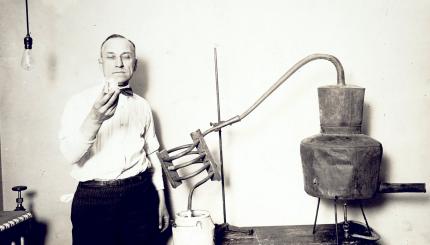For Jewish kids of color, graduating from high school and stepping out into the world often means going from a place where their story is already known into spaces where their identity may be up for question. This week we talked with Aviva Davis, veteran blogger and former Camp Be’chol Lashon camper, to find out how she envisions the transitions ahead.
Team Be’chol Lashon: Mazel tov on graduating high school and going to college! Are you looking forward to this transition?
Davis: I’m going to Brandeis and I’m really excited. When I talk to people in California about wanting to go to college on the East Coast they say, “Do you know it is cold over there?” Lots of people expect me to be scared of the weather. I know it is cold, I am not going to let that stand in the way of my education. I’m most nervous about socializing.
I think of myself as a quirky person, and I want to find people who can match that. I have a perception of myself that differs from how others perceive me.
Team Be’chol Lashon: Is being a Jew of color part of what makes you quirky?
Davis: No, being a Jew of color is separate, my quirkiness is part of being a performing arts person. Being an actress, a violinist, a singer, I have to express a lot of emotion. I have a charismatic personality. Being a Jew of color is not weird at all.
Team Be’chol Lashon: Do other people think being a Jew of color is weird?
Davis: Weird has a negative connotation. Some people think of being a Jew of color as bizarre or out of the ordinary. Mostly non-Jews have that perception. When they meet a Jew of color, it is surprising because we defy the stereotype that has been developed.
Team Be’chol Lashon: Do you get a lot of questions about being a Jew of color?
Davis: Usually it is the “You don’t look Jewish,” because I have darker skin. But often it is about Judaism itself. When I was a little kid, I had a friend who daily asked how I could believe in God and not in Jesus. I was 6 and did not know how to answer her. I had no idea. Even as an older teen I get the same questions about not “looking Jewish” and about Jesus and now I can answer them. I feel prepared.
Team Be’chol Lashon: What prepared you?
Davis: A bunch of things. I grew up with my mom, Denise Davis, who is a Jew by choice and who sent me to Hebrew school and was pretty serious about being Jewish. I learned a lot from my home and my synagogue about how to explain what being Jewish is and what it means to me.
Camp Be’chol Lashon was also really helpful. Camp Be’chol Lashon helped me realize that being different is not bad and that people asking questions is not necessarily a bad thing. At camp, we talk about how to talk about race and difference. I realized that when people are off-putting they don’t mean to be rude but they don’t know how to phrase things.
Lifelong friendships form at Camp Be’chol Lashon.
Going to Camp Be’chol Lashon helped me find people who were like me in many ways and also find people different than me. I’m pretty religious and there are all kinds of Jews at camp, some of whom are religious and some of whom are secular, and we have lots of conversations about it.
Educating yourself about who you are and then discussing with people who are like you and not like you is a really positive experience. It helped me figure out how to answer difficult questions.
Team Be’chol Lashon: You were accepted at several schools. How did you decide on Brandeis University?
Davis: I did have a few schools to choose from, but in the end, it came down to the fact that Brandeis was really welcoming. As soon as I got there, people were so excited that I was there. They knew my name and felt they really wanted me to be part of the community. We went to services and that was great. We toured the campus, and I met people from all over, who were really friendly. I felt wanted at Brandeis.
Team Be’chol Lashon: It is hard to argue with that, being wanted and welcome is always a good thing. We look forward to hearing more about your adventures over the years to come!


